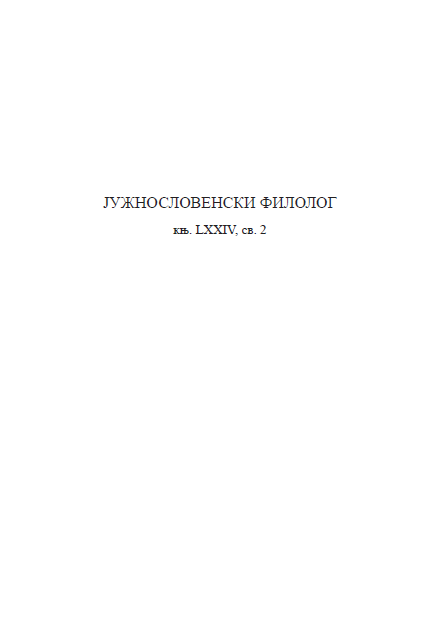УНИВЕРБИЗАЦИЈА ИЗ УГЛА СРПСКЕ ДЕРИВАТОЛОГИЈЕ
UNIVERBATION FROM THE POINT OF VIEW OF SERBIAN DERIVATIONAL MORPHOLOGY
Author(s): Goran MilašinSubject(s): Syntax, South Slavic Languages
Published by: Институт за српски језик Српске академије наука и уметности
Keywords: univerbation; Serbian derivational morphology; syntactic construction; motivator; deradixation
Summary/Abstract: This paper analyzes different meanings of the term univerbation in the Serbian word-formation processes. The main goals were to investigate different perspectives on univerbation in Serbian derivational morphology, to compare it with the views in the Slavic, English and German papers and dictionaries, and then to offer some potential solutions. In derivational morphology, univerbation is usually defined as the process of transformation of a syntactic construction as a motivator into a new single word. However, when we consider examples of univerbation from Serbian word-formation processes, we get an impression that it is not yet completely clear what this process actually is, and what distinguishes it from the other word-formation processes. One of the problems is the term univerbation (from Latin unus – ‘one’ and verbum– ‘word’), because it can be understood in several ways – as a name of the process of combining two or more words into a new single word: it can also include compounding, blending and syntactic word-formation, not only one type of the processes as it is often the case in Serbian derivational morphology. That is why we need to find some better term to name the process in which the motivator is a syntactic structure adjective + noun, and a new word is made by adding some suffix on the base of an adjective (саобраћајна несрећа → саобраћајка). We propose that this term can be deradixation, which suggests that a new word is made by eliminating some free morphemes (radices) from a motivator.
Journal: Јужнословенски филолог
- Issue Year: 74/2018
- Issue No: 2
- Page Range: 199-215
- Page Count: 17
- Language: Serbian

